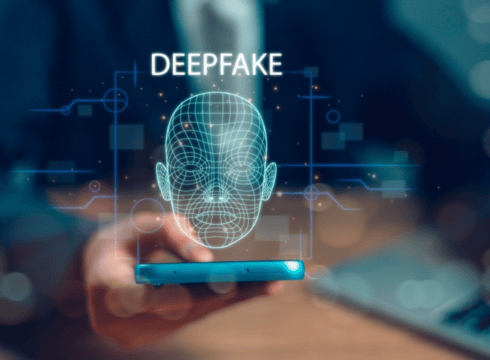A BJP delegation, led by IT minister Ashwini Vaishnaw, approached the ECI demanding “urgent measures” to address the adverse impact of deepfakes
In its complaint, the BJP noted the recent incident of a deepfake video of actor Ranveer Singh and actor Aamir Khan
The party also called for introduction of stricter guidelines for social media platforms to block accounts engaging in creating and spreading misinformation and deepfake
Inc42 Daily Brief
Stay Ahead With Daily News & Analysis on India’s Tech & Startup Economy
The ruling Bharatiya Janata Party (BJP) has called on the Election Commission of India (ECI) to take steps to address the “alarming rise” in the use of deepfake videos amid the ongoing Lok Sabha elections in the country.
A BJP delegation, led by IT minister Ashwini Vaishnaw, approached the ECI demanding “urgent measures” to address the adverse impact of deepfakes, which are circulating on social media platforms, on the electoral process.
“Going by the rampant abuse of IT and social media platforms during the State assembly elections in year 2023, we had drawn Commission’s attention to this growing menace of deepfakes. The Commission had subsequently issued directions to take strict and timely action against such abuse,” the complaint by the BJP read.
“The ongoing elections have witnessed an alarming rise in the use of deep fakes and mutilation of information via social media platforms. The challenges posed by deep fakes and manipulated content vitiates the sanctity of electoral process,” it added.
The development comes a week after actor Ranveer Singh lodged an FIR against an AI-generated deepfake video that was doing the rounds on social media where he was purportedly heard voicing his political views against the BJP.
In its complaint, the BJP noted this incident as well as a deepfake video showing actor Aamir Khan seeking votes for the opposition Congress party.
Besides, the BJP also mentioned other similar instances, including an edited video of home minister Amit Shah, which was circulated on social media.
With the rise in adoption of AI, the use of deepfakes is also on the rise. The potential of deepfakes in spreading misinformation amid elections first came into light during the Presidential elections in the US in 2020.
The BJP, in its complaint to the ECI, said, “It is imperative to recognise that certain technological advancements, particularly deep fakes, pose significant threats to the level playing field expected in electoral contests. Such technologies enable the creation of highly realistic and often indistinguishable fake audio and visual media, which can easily sway public perception and voter behaviour under false pretences.”
The party said that there is a need to hold individuals posting manipulated and deepfake content and platforms delaying action against such content accountable for interference with the free exercise of the electoral right to vote.
It asked the ECI to mandate social media platforms like X, Facebook, Instagram and YouTube to enhance their monitoring mechanisms to detect and remove deepfakes related to electoral processes.
The party also called for introduction of stricter guidelines for social media platforms to block accounts engaging in creating and spreading misinformation and deepfakes.
While India does not have any direct regulations to combat deepfakes, the Indian government has emphasised earlier about being vigilant about this menace.
Last year, the Ministry of Electronics and Information Technology asked social media platforms to comply with existing IT rules and ensure deepfakes and misinformation enabled by them are curbed.
{{#name}}{{name}}{{/name}}{{^name}}-{{/name}}
{{#description}}{{description}}...{{/description}}{{^description}}-{{/description}}
Note: We at Inc42 take our ethics very seriously. More information about it can be found here.


